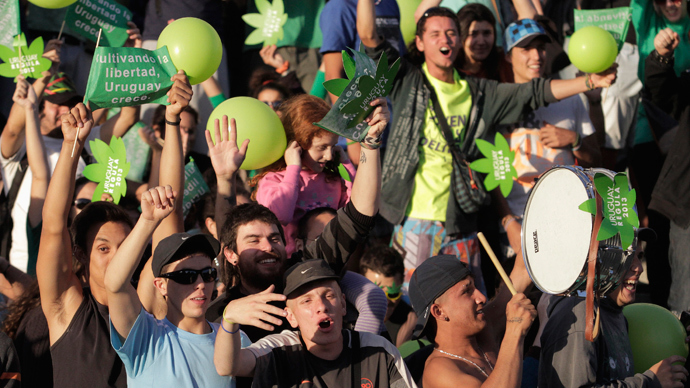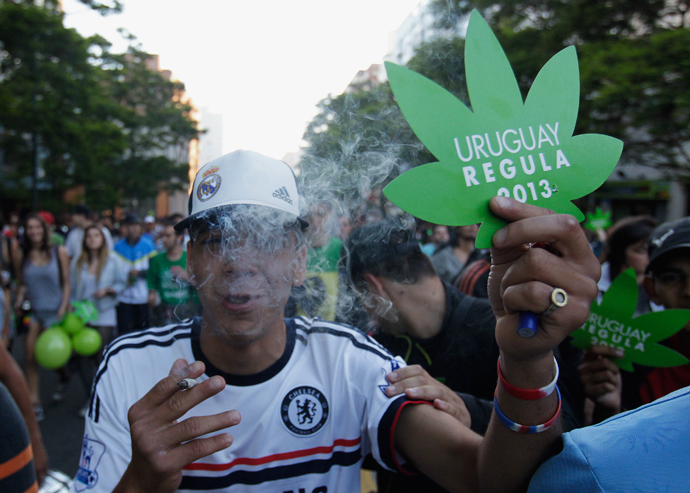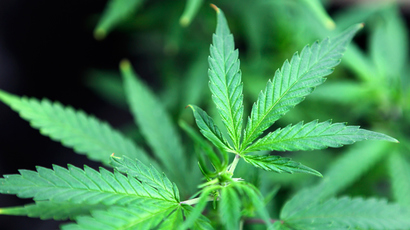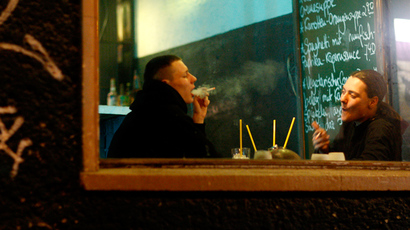Uruguay faces UN backlash for legalizing pot

Uruguay is facing criticism, as the UN’s drug body, supporting the International Narcotics Control Board (INCB), lashed out at the country for allegedly breaking international law, after it legalized the consumption and growing of the plant on Tuesday.
“Uruguay is breaking the international conventions on drug control with the cannabis legislation approved by its congress,” said the INCB, citing several reasons why it thinks Uruguay has made a mistake, among them the purported health risks associated with the plant’s use, the drug body said on its website.
Uruguay has become the first country in the world to legalize both the sale and production of marijuana. President Jose Mujica has championed the measure as a way of combating the illegal drug industry that has decimated parts of Uruguay.
Under the new law, production of small amounts, as well as consumer clubs – both under strict supervision of the government – will also be permitted.
The country’s parliament passed the bill with a vote of 16 to 13. Senator Alberto Couriel, a member of the ruling Broad Front left-wing coalition, called the passing of the bill "a historic day" for Uruguay.
The INCB, who struck out against the new measure, is essentially an independent organization for promoting international compliance with the existing conventions on drug control.

Raymond Yans, its president, in reference to the 1961 Single Convention on Narcotic Drugs, to which the Latin American state is a party, told Montevideo that he was “surprised” by the government “knowingly deciding to break the universally agreed and internationally endorsed provisions of the treaty.”
The aforementioned act only allows marijuana use for medical or scientific purposes.
He also said that the long held conviction that legalization may lead to reduced crime rates is based on “rather precarious and unsubstantiated assumptions,” adding that the new measure “will not protect young people, but rather have the perverse effect of encouraging early experimentation, lowering the age of first use, and thus contributing to…earlier onset of addiction and other disorders.”
It should be noted here that no actual evidence of physical addiction to the plant has ever been found.
Uruguay’s Tuesday move likewise provoked the UNODC to come out with criticism: "It is unfortunate that, at a time when the world is engaged in an ongoing discussion on the world drug problem, Uruguay has acted ahead of the special session of the UN General Assembly planned for 2016," said the drug office’s spokesman, David Hodge.
Senator Roberto Conde of the ruling leftist Broad Front party, presenting the bill said that “the war against drugs has failed,” adding that the new measure is an “unavoidable response”.
Uruguay’s initiative to become the first nation to legalize and oversee the production and sale of the plant has become a sort of social experiment that promises to be closely watched by the world.
Across Latin America, countries watch closely, as the idea of legalizing softer drugs is spreading across a continent troubled by much harder substances and the crime related to their production, use and trafficking.














